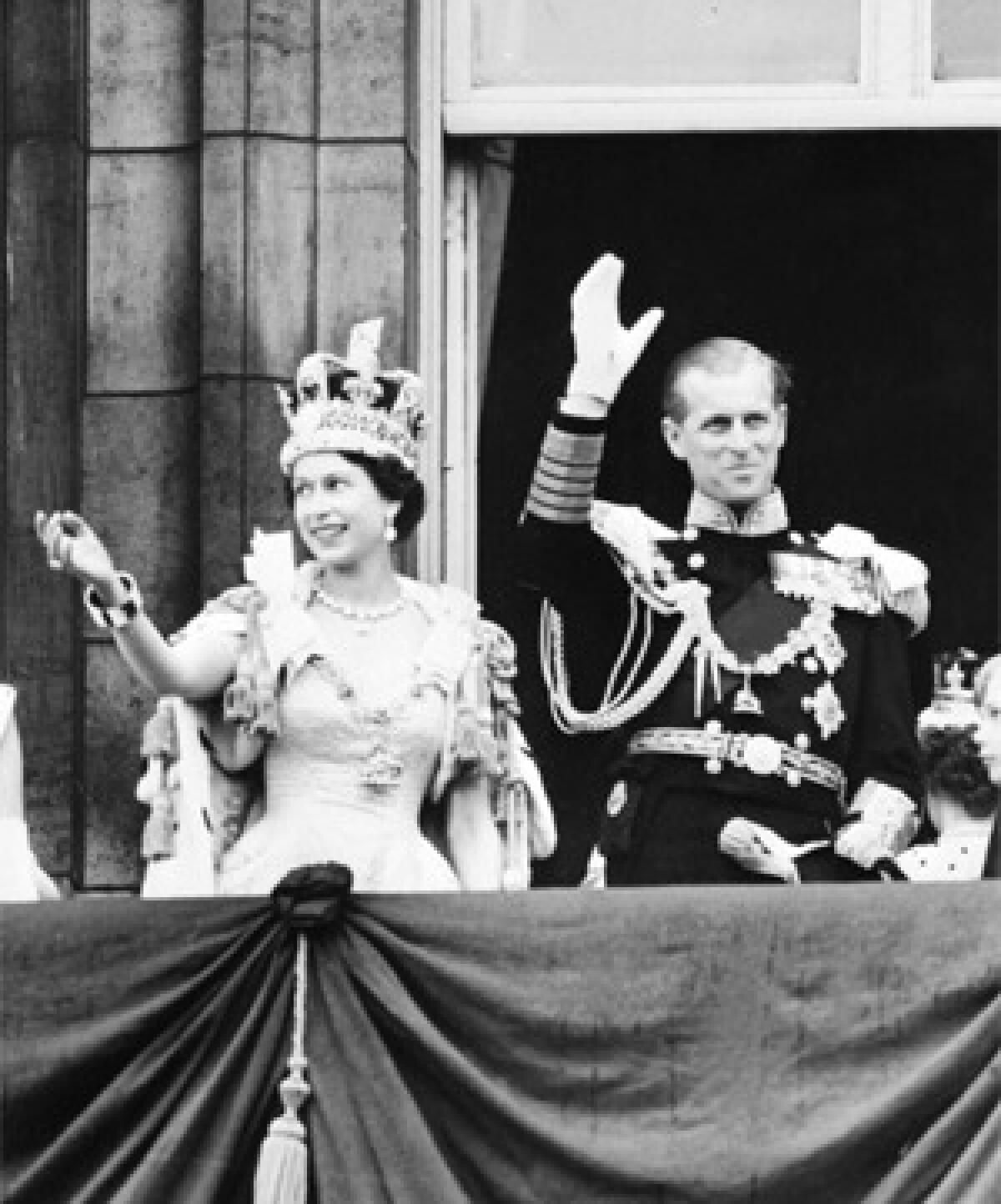Queen Elizabeth II’s diamond jubilee, and all that

The first Queen Elizabeth was standing under an English oak tree when she learned that she had become queen.
The second Elizabeth was high up in a mgumu tree in Kenya when she became queen, at the moment her father, King George VI, died in his sleep more than 7,000 miles away.
That was 60 years ago Monday. Come June, when the London weather is as good as London weather gets and the tourists are massing, Elizabeth Alexandra Mary, the second-
longest-reigning monarch in British history and only the 40th in nearly 1,000 years, will officially celebrate her diamond jubilee.
And so, in our way, will we — the same country that, at bayonet-point, told her great-great-great-great grandfather, King George III, “Here’s your crown, what’s your hurry?”
Americans tsk-tsk and deride all that monarchy stuff, but a lot of us will be watching when the carriages and the cameras start rolling.
For an explanation, let’s turn to that international savant, Lt. Frank Drebin, from “The Naked Gun: From the Files of Police Squad!” Sholto Byrnes’ blog for the New Statesman reminded me of Drebin’s response to a question about the queen’s visit to Los Angeles in the movie:
“Protecting the queen’s safety is a task that is gladly accepted by Police Squad. For no matter how silly the idea of having a queen might be to us, as Americans we must be gracious and considerate hosts.”
We may mock it, but it’s a system that has clanked along fairly well for 1,000 years. Six decades of that is to the credit of Elizabeth II, a small woman of 85 with a still-fine complexion (“She’s like that all over,” her husband once told a relative who remarked on her wonderful skin), and possessed of less than the usual female vanity (she doesn’t even pluck her eyebrows, and oh, those shoes).
In any role but her current one, she would be merely a nice lady with good pearls and a way with horses. And yet there she is, her face on stamps and coins, her name and cipher on every bit of official business in her “realms and dominions.”
In our starred-and-striped hearts, we seem to miss her and her ilk. To make up for it, we have prom kings and queens and Disney princesses. We crown Miss America. “Queen for a Day,” back in the 1950s, might have been TV’s first reality show: It bestowed a robe and scepter and brand-new appliances on the woman we felt sorriest for.
It’s possible to feel sorry for the British queen, for her regimented and scrutinized life, for suffering from her family’s tabloid misdeeds. She has weathered all kinds of criticism – that, as a young queen she was too dependent on the advice of courtiers and that, as a mature queen, she was too insular after Diana’s death. This isn’t the highhanded 18th century monarchy Americans booted out. The queen reigns, but she does not rule. Her job, famously, is to advise, to warn and to be consulted.
The monarch is supposed to stabilize change: not too fast, lest novelty overtake good sense, and not too slow, lest one find oneself headless, like one’s French royal cousins, or shot in a basement, like the Russian ones. Some monarchs change their times — the first Elizabethan age, the Victorian and Edwardian ages. This monarch has been rather more changed by hers.
She’s still working 30 years after most people her age have retired. “Some work,” you’re thinking. “Cutting ribbons, christening ships, reading speeches others write for her.” She will never get anything but the best of food, of shelter, of medical care. Yet she’s been shot at (blanks, as it turned out), her bedroom broken into by a crazed man, and she lives her life hedged about by security and scheduling.
Would you want that always-on life? Would you, on your 21st birthday, declare to millions, your future subjects, that your “whole life, whether it be long or short, shall be devoted to your service”?
As if to compensate for the randomness of the lucky sperm club that is a hereditary monarchy, the queen is scrupulously dutiful. The holy oil she was anointed with at her coronation carried far more significance for her than the bejeweled secular symbol place on her head. For all that bowing and scraping that she’s accorded, the queen’s durable appeal is that she realizes it doesn’t honor her personally but the role she occupies until she dies and her heir takes her place.
Pointless as it may seem to us — and to some Britons — it is still their preferred form of government. A Guardian poll around the time of last year’s royal wedding found that about two-thirds of them find the monarchy to be relevant. Here in the United States, the powers of head of state and head of government are vested in one person — the president. In Britain, the head of government, the prime minister, gets down in the political muck, and the monarch, above the fray of politics, brings out the ceremonial bling.
Her fans say she “hasn’t put a foot wrong.” Well, she has, with political mistakes early in her reign. And the family mistakes, especially among her children, may have consequences yet to be reckoned on what Shakespeare called the “sacred throne” of England.
But not while Elizabeth sits on it.
Patt Morrison’s Opinion interviews are published Saturday’s.
Sign up for The Wild
We’ll help you find the best places to hike, bike and run, as well as the perfect silent spots for meditation and yoga.
You may occasionally receive promotional content from the Los Angeles Times.




